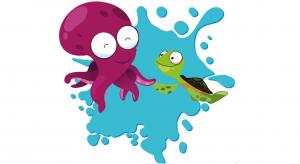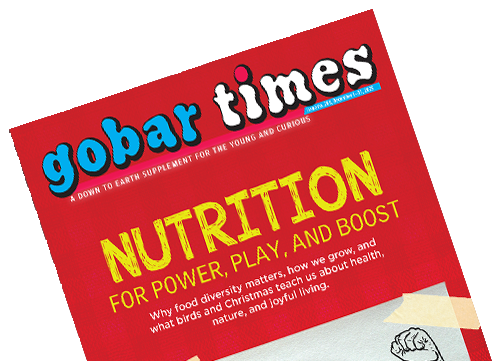
Plastic pollution creates an evolutionary trap for young sea turtles, says a new study. The study is done by researchers from the University of Exeter, UK. The study included 121 sea turtles from five of the world’s seven species: green, loggerhead, hawksbill, olive ridley, and flatback. They found plastic inside juvenile turtles along both the east and west coasts of Australia. Sea turtles usually hatch on beaches and spent their early years traveling on ocean currents...

A fascinating account by a passionate marine environmentalist explaining why seaweeds are environmentally the most sustainable foods on our planet. ******************************* Hi! Do you guys know what a seaweed is? It’s like the spinach of the sea. You might have eaten it in a roll of sushi or a bowl of green salad or a soup. But most likely, you wouldn’t have tasted it at all. That’s because in India, we don't have a popular tradition of seaweeds. But that's about to change—I believe as the founder of a seaweed food company called The Good Ocean...

Join Pankaj Sekhsaria on a spellbinding sprint across Andaman & Nicobar Islands and explore one of their enigmatic inhabitants, the green sea turtle. Sekhsaria has recently released his first book for children, called Waiting for Turtles.

A walk on the beach is an insight not just into our leisure but also into our addiction to plastic. More than 80 lakh tonnes of plastic is dumped into the oceans every year. Sea creatures often mistake plastic for food and die because of it. Sea turtles are probably the most gullible creatures of the sea. Why? Well, that’s because they are likely to confuse plastic floating in the ocean for food and eat it, says a recent article published in the Science News magazine. However, in the poor creature’s defense, they are not the ones filling our oceans with plastic...

One upon a time, in the great blue ocean there lived a turtle called Tundra. She travelled miles and miles from the Pacific Ocean to the warm waters in the Indian Ocean. When she reached the shoreline, she could not believe her eyes. It was at the same beach she had first set foot on when she was a baby. It was the best beach to lay eggs.

